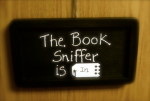Les Misérables.
I have never read Victor Hugo’s book. Typically I like reading the book after watching the film. It’s like getting the extended edition of the movie with all these extra scenes.
With Hugo, I can clearly see that is a gross understatement.
We have a paperback version of Les Mis, which I started to read, but then I opted for a free download of an iBook version. The iBook version was an extended edition in turn of the book on our shelf! The first 78 pages (out of 1680!) were all focused on the Bishop of Digne, Monsignor Bienvenu. Bishop Welcome.
I was mesmerized. Entranced. Dazzled.
Merton, Rohr, Manning, Heschel, all rolled up into one character on a page long before their existence. I found myself gazing into what I can only hope is a mirrored soul. I so want to go to there. With all my being this is who I would be, how I would be, what I would be. Christ in me. What more could he be in me than this Bishop of Digne?
Some of the richest reading I’ve done in some time. Gotta share the portrait of this mirrored soul. Perhaps it will strike a similar chord in you. And if not, meh, there are other things to read I suppose…
Oh, and one more note. Pointing out the obvious. My garden would be a garden of books.
As we have seen, prayer, the celebration of the offices of religion, alms-giving, the consolation of the afflicted, the cultivation of a bit of land, fraternity, frugality, hospitality, renunciation, confidence, study, work, filled every day of his life. Filled is exactly the word; certainly the Bishop’s day was quite full to the brim, of good words and good deeds. Nevertheless, it was not complete if cold or rainy weather prevented his passing an hour or two in his garden before going to bed, and after the two women had retired. It seemed to be a sort of rite with him, to prepare himself for slumber by meditation in the presence of the grand spectacles of the nocturnal heavens.
Sometimes, if the two old women were not asleep, they heard him pacing slowly along the walks at a very advanced hour of the night. He was there alone, communing with himself, peaceful, adoring, comparing the serenity of his heart with the serenity of the ether, moved amid the darkness by the visible splendor of the constellations and the invisible splendor of God, opening his heart to the thoughts which fall from the Unknown. At such moments, while he offered his heart at the hour when nocturnal flowers offer their perfume, illuminated like a lamp amid the starry night, as he poured himself out in ecstasy in the midst of the universal radiance of creation, he could not have told himself, probably, what was passing in his spirit; he felt something take its flight from him, and something descend into him. Mysterious exchange of the abysses of the soul with the abysses of the universe!
He thought of the grandeur and presence of God; of the future eternity, that strange mystery; of the eternity past, a mystery still more strange; of all the infinities, which pierced their way into all his senses, beneath his eyes; and, without seeking to comprehend the incomprehensible, he gazed upon it. He did not study God; he was dazzled by him. He considered those magnificent conjunctions of atoms, which communicate aspects to matter, reveal forces by verifying them, create individualities in unity, proportions in extent, the innumerable in the infinite, and, through light, produce beauty. These conjunctions are formed and dissolved incessantly; hence life and death.
He seated himself on a wooden bench, with his back against a decrepit vine; he gazed at the stars, past the puny and stunted silhouettes of his fruit-trees. This quarter of an acre, so poorly planted, so encumbered with mean buildings and sheds, was dear to him, and satisfied his wants.
What more was needed by this old man, who divided the leisure of his life, where there was so little leisure, between gardening in the daytime and contemplation at night? Was not this narrow enclosure, with the heavens for a ceiling, sufficient to enable him to adore God in his most divine works, in turn? Does not this comprehend all, in fact? and what is there left to desire beyond it? A little garden in which to walk, and immensity in which to dream. At one’s feet that which can be cultivated and plucked; over head that which one can study and meditate upon: some flowers on earth, and all the stars in the sky.



















